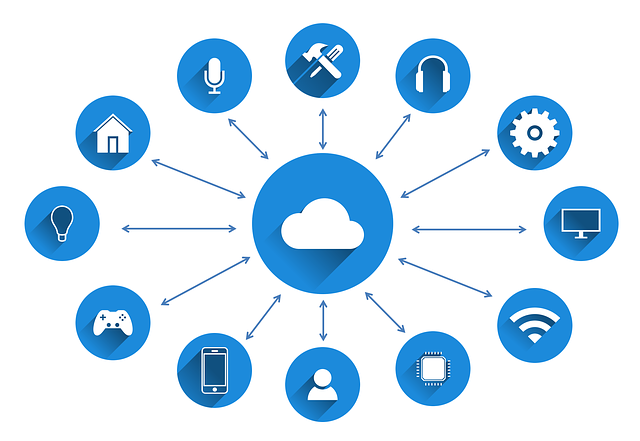
Good reasons for switching to Cloud accounting
It is estimated that some 65% of UK accountancy practices - including Premier - are moving their customers to Cloud accountancy software; four out of five UK organisations already use at least one cloud-based service, such as Dropbox. So why should small businesses take the full plunge?
Grasping the future with both hands
In our last newsletter, we introduced you to the concept and advantages of working with us closely throughout the working day via Cloud bookkeeping.
We use a combination of Auto Entry, scanning and forwarding PDFs of invoices to you, and Xero online bookkeeping software.
So, for example, we can show you a line online for, say, a Scottish Power electricity bill, next to a PDF icon to view the actual invoice.
HMRC have confirmed that this is perfectly adequate record-keeping. You can bin your paper files safely, but still dig out old invoices digitally from the comfort of your sofa.

Wider digital mission
However, a wider part of Premier's mission is to introduce our customers and local businesses to the huge unfolding benefits of Cloud accountancy. The future is changing.
Most small firms are already involved with the Cloud; a new survey shows that the most popular services are web hosting, blog and content management (39%), email (32%) and file sharing (32%).
Additional standard applications currently being developed for 2018 include network monitoring (35%), backup (34%), sales/ CRM and ticketing systems (35%).
Even so, a question you might be asking "w"hat's in the Cloud for me?"
The answer is plenty if you are a busy business with insufficient hours in the day that wants to run more efficiently and grow more profitably with less effort.
As ICAEW Head of Enterprise, Clive Lewis explained recently: -
"Online access to bookkeeping and accounting is rapidly becoming the must-have accounting service model for SMEs. Cloud accounting is the future of finance. Such a fundamental change can be an intimidating prospect for small businesses, but the benefits of a successful transition can be vast."
He of course added that businesses should think about the risks around availability and security of data before they step into the world of cloud accounting.
We would be pleased to talk you through the options. Meanwhile, some of the most obvious advantages include:
- Doing business on the go
Start-ups, young and growing businesses need to be more flexible than ever, especially when it comes to managing accounts. The Cloud lets you manage your business on the go with an internet connection and a mobile device.
That can be while travelling to a meeting, between meetings, or in any convenient coffee shop.
- Team collaboration improves
Everyone with a part to play can get directly involved. Cloud software allows multi-user access. It also creates real-time communication between team members.
That means that everyone can input efficiently without being in the same room. You, meanwhile, can monitor and keep up to date with all activity. Simples!
If a dedicated accountant works on your books, with just as few clicks you can now keep in constant touch with them, sharing files and documents and asking and answering questions.
- You save money
Small businesses don't have money to waste. Cash flows need managing carefully. Savings have to be made wherever possible.
Cloud computing requires less physical server hardware, IT support, maintenance and software upgrades.
- Integration is easy
There are many great Cloud tools and platforms that can not only help you run your business more efficiently but are also easily integrated.
The days of payroll, invoice payments, HR or general accounting being dealt with separately at the expense of valuable time are over. The Cloud in effect works as a single, well-coordinated control.
- Good for risk and recovery
Confidence that data is stored safely and backed up is a paramount business concern. The Cloud is one of the most secure, cost-effective and space-efficient ways of doing this.
When business suffer a catastrophic emergency - fire, flood, criminal break-ins and civil unrest - the Cloud's risk and recovery benefits for sensitive and time-sensitive data can be very important.
If your business backs up data once a day, 23 hours and 59 minutes' worth of your most recent information is left vulnerable for most of the time. With the Cloud, back up is instant and continuous.

How secure is the Cloud?
The answer to this question is, yes in an age of cyber-attacks, trusting your data fully to a third-party host has potential risks. But the Cloud is arguably more secure than data held on your desktop computer, laptop, or an on-site server.
It is in the interest of reputable Cloud service providers to invest heavily in both physical and electronic security - including continuous backup processes, backup power supplies, firewalls, data encryption software and regular third-party security audits.
Having multiple servers in different locations also offers a much higher level of physical protection against floods, fire, malicious damage and simple staff security breaches.
It is for every company to decide for themselves the balance of risks and opportunities. However, companies also have a crucial role to play in controlling access rights, changing password regularly and training staff on security risks.
Catching up with the world
The UK is currently trailing the US and Australia on the digital tax front; only 31% of UK firms have 80% of their clients online, compared with 49% in the US and 54% in Australia, according to recent survey figures.
This is expected to rise within two years to 56%.
Meanwhile, the UK currently has the highest number of desktop clients (28%) compared to Australia (9%) and the US (5%). The introduction of digital tax laws in 2018 is expected to make a significant difference.
However, Cloud accountancy offers a further important benefit.
By filtering through the available Cloud app add-ons and related services, accountants like Premier Accounts will be able to recommend what else to best add into best practice 'packages' that go far beyond basic bookkeeping and tax returns in favour of a greater role in business development and carefully planned growth.

